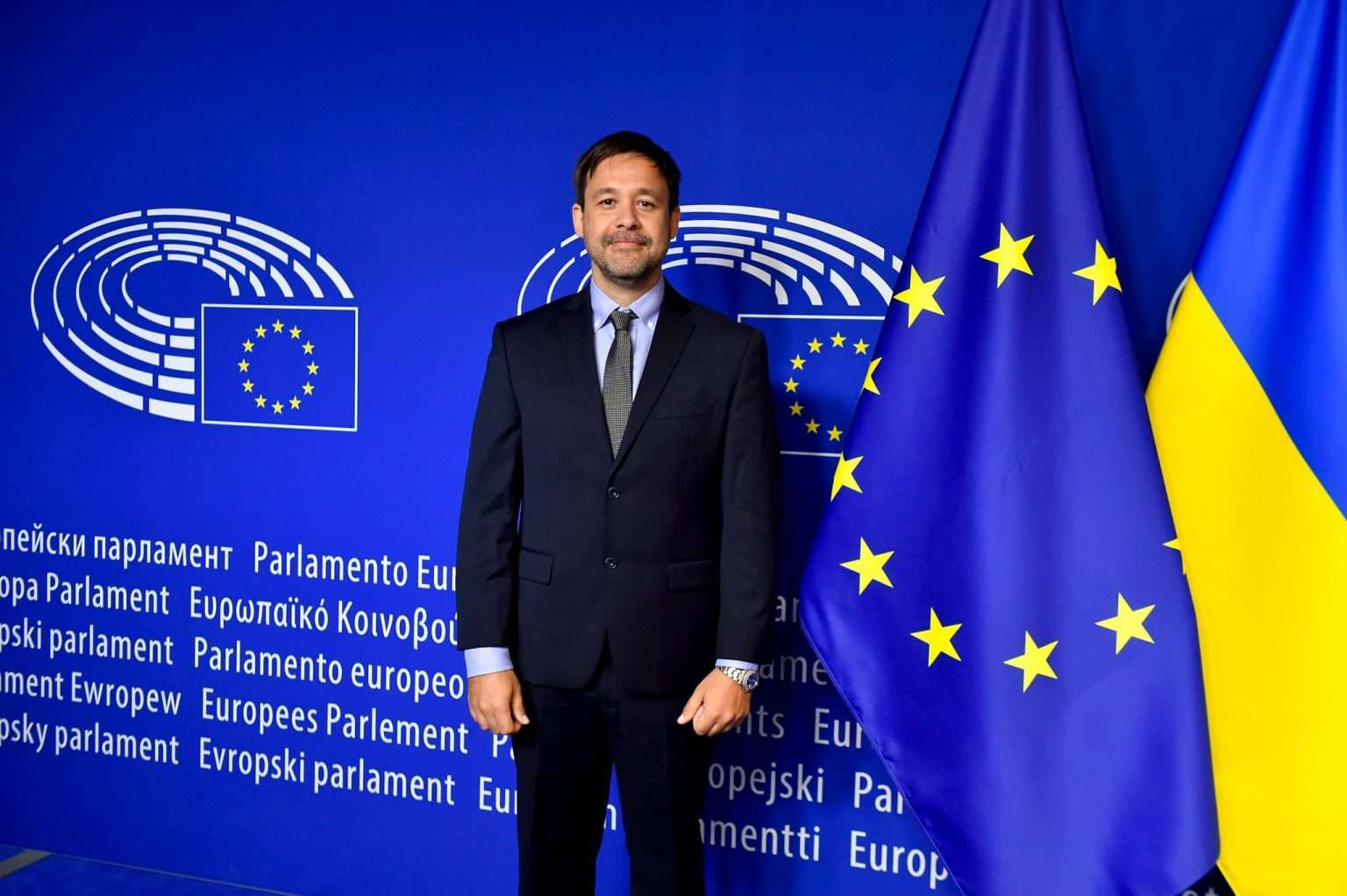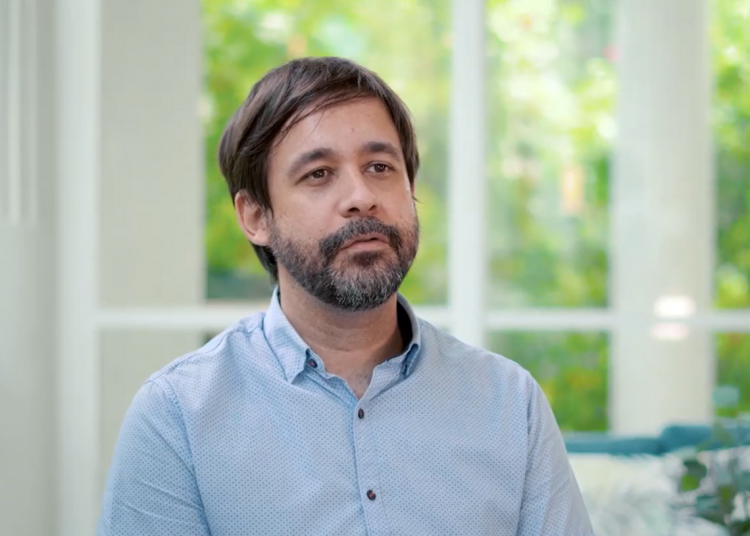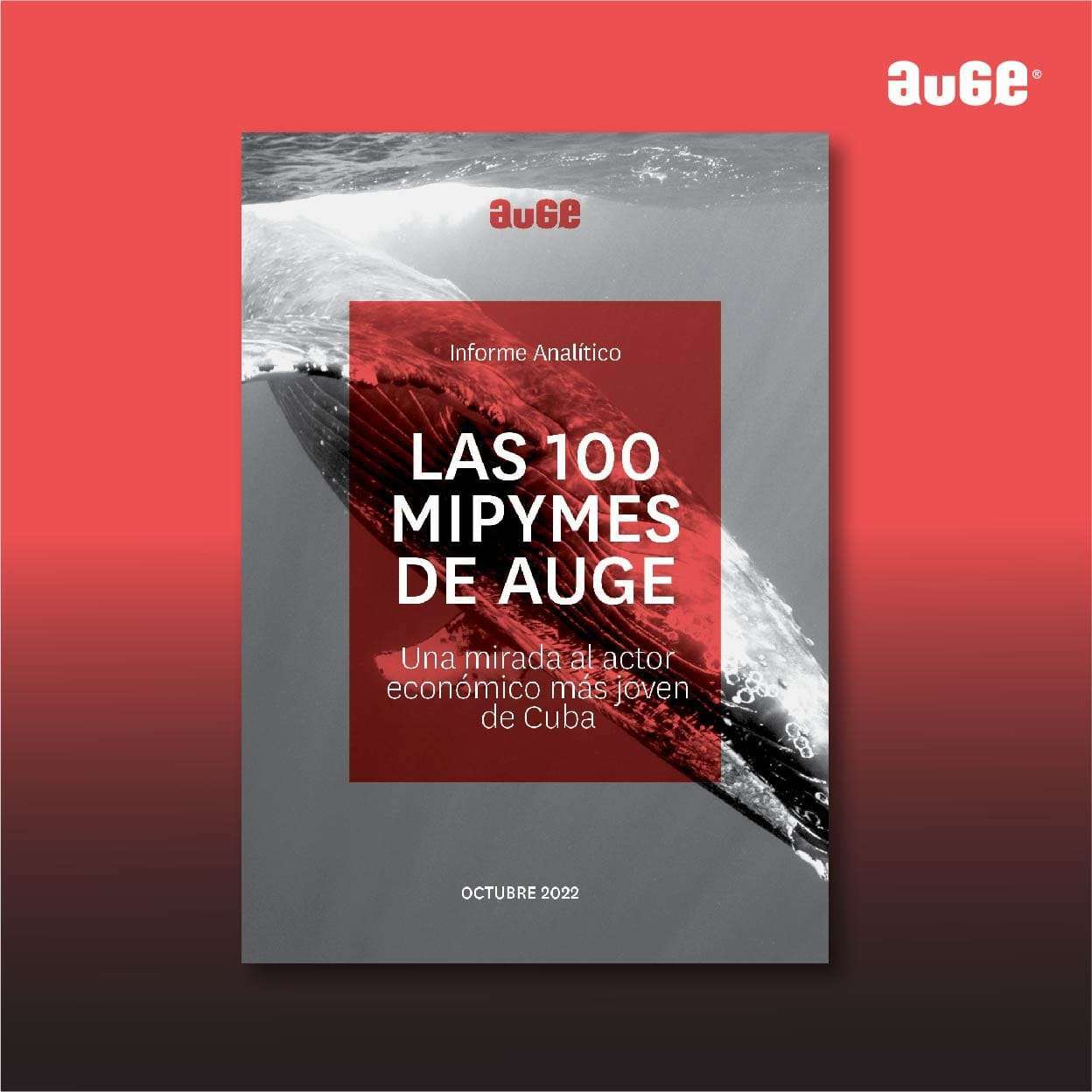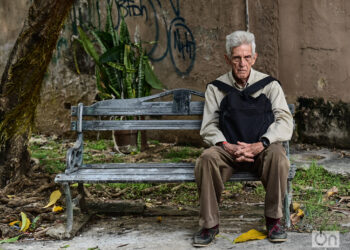AUGE is a private Cuban corporate services company. Its objective is to serve other enterprises for the development of their businesses: it covers finance, marketing, communication and design. It began this activity in 2014, made up of self-employed workers, and since the beginning of this year as a company registered in Cuba. Oniel Díaz, president of AUGE, speaks to OnCuba regarding progress and dangers in the panorama of SMEs in Cuba.
According to your experiences in the field of SMEs, what is the main activity of private enterprises in Cuba?
SMEs are established on the basis of a corporate purpose — their business task — with unlimited economic activities, but one of them will be considered the main one.
Among the main activities most represented among the new SMEs are construction services and the manufacture of goods. In the latter, the production of food and beverages, construction materials and textile products stand out.
Measuring these new actors only by the main activity declared at the time of their incorporation can be misleading. In the coming years, the true main business of these enterprises will be revealed as a result of the adaptation of their economic activities to the Cuban reality and their trade.
Is there a legal framework and legal scope to resolve conflicts both between private enterprises and between a private enterprise and a state enterprise?
Yes. In the last two years, the authorities have issued several regulations, which not only implement this type of recourse but others aimed at regulating issues such as the existence of partners, the protection of their interests and bidding processes, among others.
But regulations issued before the appearance of private actors are also maintained, of which few remember, but which sometimes become serious obstacles to the normal functioning of the economy.
The mechanical habit in certain State institutions of wanting to apply procedures and standards to private enterprises is also greatly encumbering; it may be appropriate in the State ones, but not in private ones.
The legal changes that have brought us to this day have been positive, but greater integration and coherence is needed between laws, resolutions, state institutions in charge of applying them, and private enterprises.
Can you give examples of the obstacles?
A very long list can be made. But to mention only one area, I would point to those related to Cuban banking. Because, in general, the commercial banks in which SMEs operate their accounts have replicated the procedures designed for state-owned enterprises, without analyzing that a public enterprise is not the same as a private one.
State enterprises must be subject to additional restrictions and controls since they operate with public money; but the private ones, beyond standard banking procedures, need more room for maneuver and flexibility to dispose of their resources.
On many occasions the bank does not facilitate; it complicates. It does not adapt to the needs of customers as particular as small businesses. It is expected that these are the ones that adjust to banking services. If we add what is related to the operation in freely convertible currency (FCC), the problem becomes greater.
Right now we are experiencing a situation in which foreign currencies are required to be able to import. There is no capacity on the part of banking institutions to sell those currencies; which, looking at the current economic context, is somewhat understandable. But a rule prevents us from receiving payments in FCC from foreign branches and other entities based in Cuba. Otherwise, that would be a safe and legal way to access the currencies.
How is it possible to understand this obstacle when practically almost the entire supply system of private actors is in foreign currencies or FCC? There is still much to change and time is short.
What place do private enterprises occupy in national economic activity? I understand that the private sector, including cooperatives and self-employed workers, currently employs 1,400,000 citizens? What is its import volume?
It is too early to give a well-founded assessment; not even a year has passed since its implementation in Cuba.
The Constitution of the Republic grants it a complementary place to the state enterprise, but life, more precise than political statements, will say the last word.
For now, some published figures and the reality that is being observed offer indications that private enterprises will play an increasingly important role in the national economy.
Today there are more private than state enterprises in Cuba.
Until now, the non-state sector employs more than 32% of the country’s labor force, and private actors have carried out foreign trade activities for a figure of around 400 million dollars.
Recently it was possible to verify a healthy and dynamic presence at the Havana International Trade Fair (FIHAV) of several SMEs that participated as exhibitors, signed agreements and presented their products and services at the main commercial event in the country.
How much does it cost in expenses and time to find a private enterprise in Cuba? Does AUGE provide the service of getting, on behalf of the future owner, a legalization?
Forming and registering a private enterprise in Cuba is not expensive. Current regulations do not establish minimum or maximum figures to establish the social capital of the enterprise being created; therefore, it can be done with the money available. On the other hand, the fees to be paid to formalize the entity before a notary and commercial registry are small.
But setting up a business requires more monetary resources. Procuring equipment and raw materials is one of our main headaches because it must be done in an economy highly dependent on imports, with a monetary exchange disorder and affected by tremendous inflation. This significantly raises the financial needs of new actors.
At AUGE we have been working to support our clients by taking the first steps to define, organize and start operating. More than legalization (which is done directly before public institutions accredited for such functions), we make it possible for private enterprises to be born and remain.
Can a private enterprise in Cuba have an account in dollars for its performance?
Private enterprises and any other private actor operate bank accounts in FCC in which they can credit the income they obtain in foreign currencies for carrying out certain operations, executing expenses in entities that work with these currencies or importing.
In recent months, due to the exchange situation in Cuba and the delays of state banking institutions in payment to suppliers, these accounts and especially the FCC have lost relevance in the traffic carried out by these actors.
With regard to imports, for example, it has become almost essential to have financial resources outside of Cuba to pay suppliers directly in their accounts abroad.
What are other difficulties that a private enterprise in Cuba faces for its work?
The biggest difficulties are those derived from the country’s economic situation: dealing with inflation; obtaining currency to close their cycles; profitably connecting with suppliers and retaining staff, who are constantly debating between moving to better-paid positions or emigrating.
These are problems that, in order to be mitigated or solved, urgently require structural changes in our economy.
I would add those that are normally faced when starting a venture anywhere in the world: access to financing; learning to navigate the regulatory environment; entering the market quickly and having solid information for decision-making.
As it is a recent activity in Cuba, the regulations of the Cuban State may change regarding autonomy and operation. Is any change in sight? What consequences can these changes have?
I think that will be a risk that will have to continue to be dealt with. The reality of Cuba comes from a way of organizing and understanding the economy where the private sector was outlawed.
Since 2010, that vision has progressively given way, but those points of view survive not only within certain parts of the Cuban government, but also in society. I do not assume these as illegitimate points of view, but I am concerned about the lack of open discussion in public spaces on the subject, because without it we will continue to oscillate from one side to the other as far as the private sector is concerned.
There are recurring episodes in which, after opening a space for market relations, the damages that these would supposedly imply are publicly wielded, to question the opening and push it back.
For me, it was very striking that during this year of work, what took us the longest in AUGE was not to talk about the technical aspects of the creation of an enterprise, but to talk about whether the appearance of SMEs was reversible or not.
The suspicion is not exaggerated, because it is based on past experiences, such as the “Improvement of Self-Employment” of 2017, which wanted to freeze this transformation, but was left aside, fortunately, without up to now an explanation being given on what happened.
Given the current times in Cuba today, any modification in terms of partially reversing certain aspects of the new regulations for private actors will be a huge mistake in economic and political terms. You can’t get out of the crisis we are going through without confidence, stability and predictability.

Until now, the Cuban state has been resentful of private enrichment in Cuba. How is said resent found, discounting illicit enrichment, reprehensible in any country? Can an enterprise acquire real estate, office or storage property?
The enrichment of a few, the inequalities, is an essential part of the criticism of the Revolution against global capitalism for more than sixty years. It is therefore one of the criticisms that are also made of the Cuban private sector. It has been like this for years, it will not disappear at a stroke, but the recognition of private actors in recent years and their appearance, even in the constitutional text approved in 2019, has clarified that the idea of “egalitarianism” that was also cultivated in Cuba is unreal and counterproductive.
Ten years of a growing insertion of the non-state sector in the economy has generated benefits for a part of the population, but it has also deepened existing inequalities and generated new ones. We all have to take care of this, government and enterprises, designing applicable measures and verifying results, without falling into rhetorical and sterile discussions that do not advance the country’s economy one millimeter and do not really close the inequality gaps.
What would be the possible regulatory measures of the Cuban State that would constitute a step back in the march of private enterprises? Can you name them and say what the consequences would be?
In recent weeks we have observed changes, unusual up to now, in the processing of new enterprises.
Everything seems to indicate that there is criticism within some government institutions regarding private marketing activities, social objects integrated by many activities and the lack of connection between them.
Any decision that is executed today, by those in charge of these processes, that goes in the direction of questioning the marketing activities or the broad corporate objects would be contrary to the current law, which has been applied for little more than a year. It would also be detrimental to the lives of these new actors and would reinforce the perceptions of insecurity and distrust to which I referred earlier.
This has coincided, in turn, with actions indicated by the national government to confront illegalities, hoarding of merchandise and acts of corruption, in which frequently, due to the language used, the impression is given that they were inherent and exclusive to the non-state sector.
This behavior always generates inspections and questions, some of them without clear legal support, which aggravate the problems that are intended to be solved.
My reaction has been more of a call to persevere in the changes, than an alarm for a “reversal,” which I do not see in practice, and which is already impossible.
We have recently seen more precise statements by Prime Minister Manuel Marrero, clarifying that the action plan he mentioned before is not against private actors but against corruption and illegalities that are expressed as a phenomenon throughout the economy, including the state economy.
For our part, it will be necessary to continue discussing and warning about any hesitation in the application of what was approved a year ago and, even more importantly, about pending issues in fiscal, labor, banking and commercial matters that need to be resolved.












Hi Jorge, how can I contact Oniel Díaz Castellanos?
I live in Florida and would like to open a buissness in Cuba.
Thanks,
Jay.